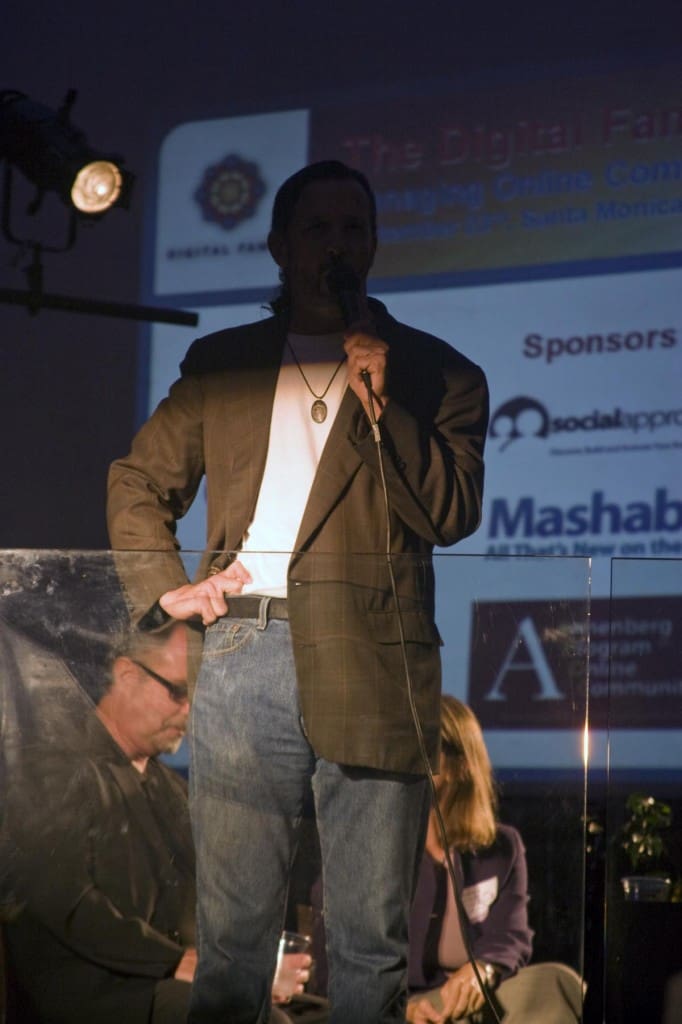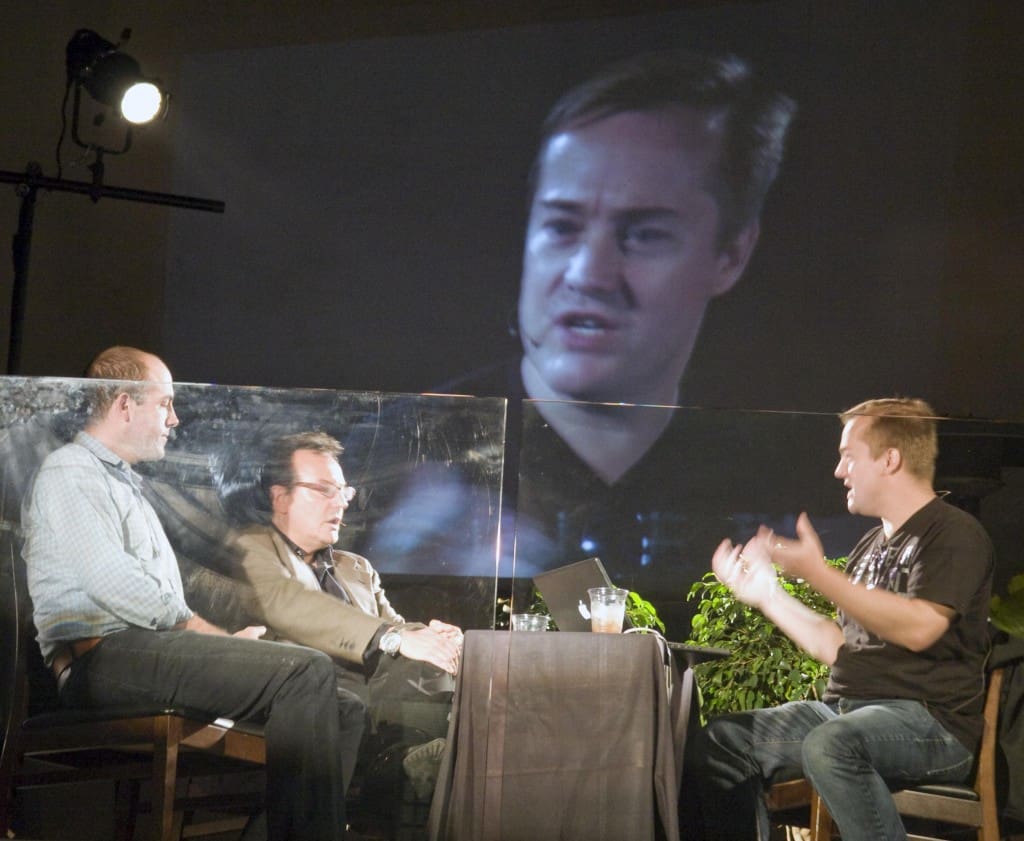It was a cinematic night, as event organizer Brad Nye looked like he was making an entrance in a James Bond film, and Jason Calacanis did a Q&A (thanks for taking my question first, BTW), and looked a little like Citizen Kane.
It’s late and I’ve got a lot more post-processing to do on the photos, so here’s just a couple of the images that I shot. The video of the discussions can be found at This Week in Startups.

Before the lights were adjusted, standing on the platform over the audience made the speakers look like they were either making a dramatic entrance - or having their identities concealed in some "60 Minutes" tell-all segment.
The energy of the old VIC was certainly present – a little too much, as techies on the make back at the bar made it a little hard to hear the speakers at the time. This, despite the overt threat by organizers to find the yapping networkers and toss them out.
Anyway, here’s Calacanis discussing what the future of social media sites is going to look like, and what smart companies should do in the next couple of years to try to adapt to the increasing pace of innovation.

As I said in an email to Nye, Jason would probably be secretly pleased at the whole Citizen Kane-esque imagery here. And then, of course, he'd feel conflicted about it and make a self-deprecating joke.
One of the more interesting areas of discussion – particularly since I just got back from Costa Rica – centered around virtual currency as being “the next big thing.” Certainly seems that way in places like Costa Rica, where you’re getting an increasingly large, tech-savvy and connected labor force. A lot of people either work in the internet gambling industry there – or have relatives/friends that do. The speed of internet connections in San Jose – and even out in the jungles on the Pacific side – stunned me. I’ve had much worse connections in the small town U.S.A.
One of the things that has stuck in my head the last week or so has been the stories coming out about how spammers are getting around the Captchas by simply hiring dirt-cheap human labor to fill in the blanks on the pages to stuff spam onto our hard-constructed sites. I’m not sure what the next step in trying to get rid of the spam is going to be – Calacanis lamented how from the very first days of blogs, spam started becoming a problem, and it has kept pace with our attempts to try to get rid of it. Now it’s starting to get into the social networking world (viz today’s Phishing attacks on Twitter), where the level of trust that we have for our social circle is going to make the impact of a malicious click that much heavier.

Trackbacks/Pingbacks